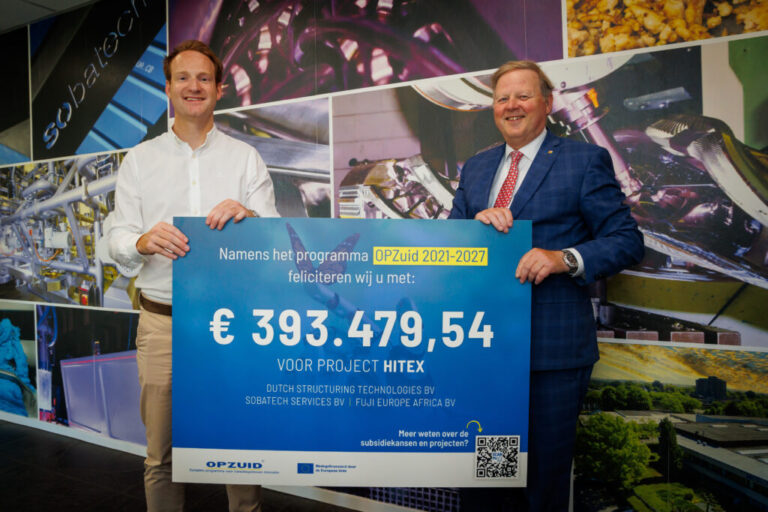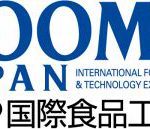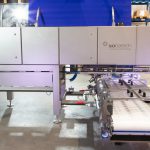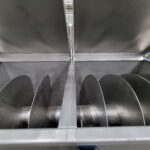Brussels has allocated €105 million to stimulate innovation in the southern Netherlands, with an additional contribution of €20 million from the Dutch government. The funding took place in the context of the new OPZuid program that runs until 2027. Dutch Structuring Technologies (DST) is the first company to receive a grant under the OPZuid 21-27 subsidy. It received an amount of nearly €400,000. The Maastricht-based company, together with Sobatech Services and Fuji Europe Africa BV, is making a machine that can produce plant proteins on a large scale with the same texture and taste as meat or fish. Ad Roest, deputy of the province of Limburg, congratulated DST on receiving the grant last Tuesday.
Ad Roest emphasizes the importance of the European grant program for innovation, especially for the southern Netherlands and Limburg. He states, “Continuous innovation is crucial for us to keep manufacturing technology in our region. To sustain innovation, we need knowledge and skills. Furthermore, to keep technically and scientifically educated people in Limburg, we must offer job opportunities. European subsidies play an important role in creating a promising investment climate by facilitating the scaling up and development of innovative projects. Moreover, these subsidies promote collaborations between companies, research institutions and governments, ultimately strengthening their innovative strength. Therefore, these subsidies benefit the entire region.”
Food of the future
During a working visit on June 13, Ad Roest expressed his admiration for DST and their ongoing efforts for the protein transition using innovative techniques. Limburg farmers are also researching and experimenting with growing protein crops that fit this concept, making it a promising initiative for the future of food. Projects like this, which take bold steps into new territory, receive support from the European Union and the province to accelerate implementation. This support is crucial as we face major transition challenges in energy, climate, resources, health, agriculture and food. Small and medium-sized enterprises and knowledge institutions can apply for European grants for these themes in the coming period.
Upscaling
Julian Lekner, the director of DST, expressed his satisfaction with the delegate’s visit to their company. DST previously received a European grant that allowed them to develop a functional machine. This machine ensures that plant-based proteins have the taste and texture of meat or fish. In collaboration with Sobatech Services and Fuji Europe Africa BV, the new European grant will allow them to scale up their production. While their first prototype produced 20 kg per hour and the current machine can handle 200 kg per hour. The new machine should be able to handle production up to 1,000 kg per hour. Furthermore, they plan to use the grant for product development to create more flavors and textures. This will help to meet the growing demand for sustainable alternatives to meat and fish.
Source: Stimulus Programmamanagement





